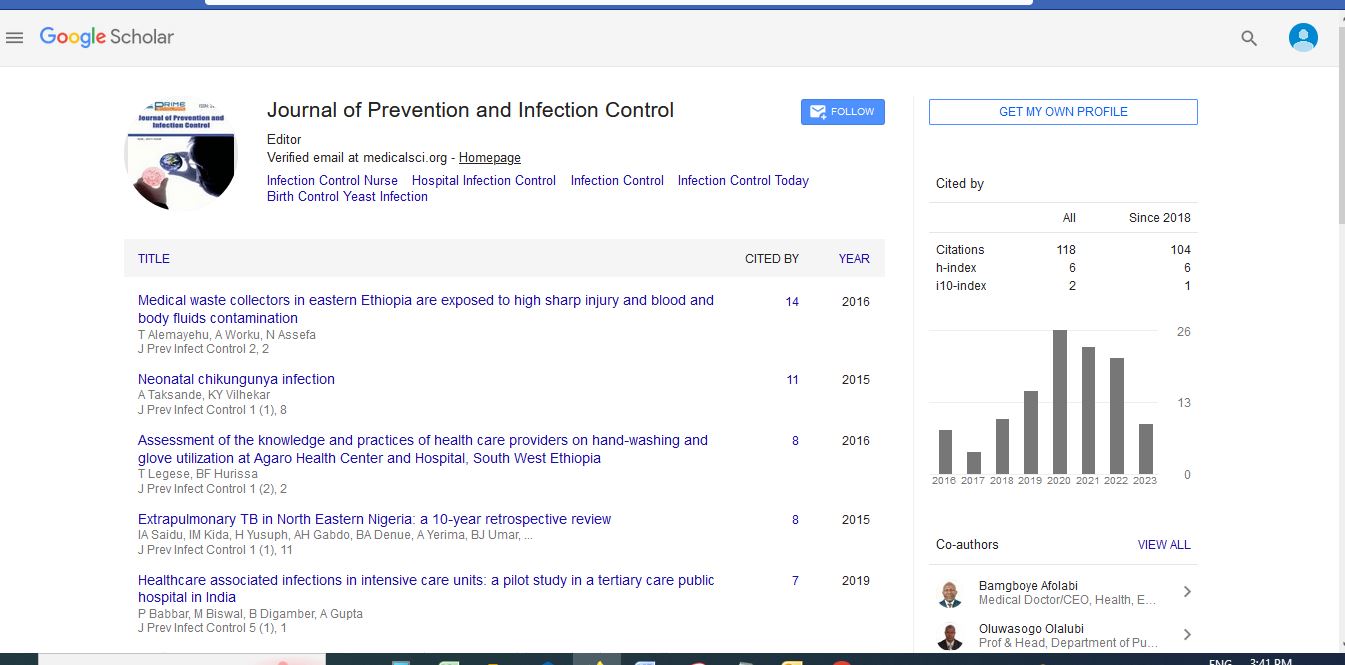Perspective - (2024) Volume 10, Issue 1
Isolation: Navigating Solitude in a Connected World
Evelyn White*
Department of Medical Science, Georgetown University, USA
*Correspondence:
Evelyn White,
Department of Medical Science, Georgetown University,
USA,
Email:
Received: 28-Feb-2024, Manuscript No. IPJPIC-24-20042 ;
Editor assigned: 01-Mar-2024, Pre QC No. IPJPIC-24-20042 (PQ);
Reviewed: 15-Mar-2024, QC No. IPJPIC-24-20042 ;
Revised: 20-Mar-2024, Manuscript No. IPJPIC-24-20042 (R);
Published:
27-Mar-2024, DOI: 10.36648/2471-9668-10.1.08
Introduction
Isolation, often synonymous with loneliness and seclusion, is a
state of being physically or emotionally separated from others,
whether by choice or circumstance. While isolation can evoke
feelings of solitude and disconnection, it also offers opportunities
for introspection, self-discovery, and growth. This article explores
the concept of isolation, its psychological and social implications,
and its role in the human experience. In today’s interconnected
world, where technology facilitates constant communication
and social interaction, the experience of isolation may seem
paradoxical. Yet, amidst the noise and distractions of modern
life, many individuals find themselves grappling with feelings of
isolation and loneliness. Factors such as social distancing measures,
remote work, and digital communication can contribute
to a sense of disconnection and alienation, even in the midst of
virtual connectivity. Isolation can take many forms, ranging from
physical isolation, such as living alone or being confined to a solitary
space, to emotional isolation, characterized by feelings of
loneliness, detachment, and alienation from others.
Description
Physical isolation may result from circumstances such as geographic
remoteness, illness, incarceration, or quarantine, while
emotional isolation may stem from factors such as social rejection,
loss, trauma, or mental health issues. While isolation can
be challenging and uncomfortable, it also offers opportunities for
self-reflection, introspection, and personal growth. Solitude provides
a space for individuals to explore their thoughts, feelings,
and values without external distractions or influences. It allows
for moments of quiet contemplation, creativity, and self-discovery,
fostering a deeper understanding of oneself and one’s place
in the world. Moreover, isolation can be a catalyst for creativity,
innovation, and problem-solving. When removed from the pressures
and expectations of social interactions, individuals may
find themselves free to explore new ideas, pursue passions, and
engage in creative pursuits. Feelings of loneliness, despair, and
hopelessness may intensify in isolation, leading to increased risk
of depression, anxiety, and other mental health disorders. Social
isolation has been linked to a range of adverse health outcomes,
including cardiovascular disease, weakened immune function,
and cognitive decline, highlighting the importance of social connection
for overall well-being. In the context of the COVID-19
pandemic, isolation has become a widespread experience for
many people around the world, as lockdowns, quarantine measures,
and social distancing guidelines have necessitated physical
separation and limited social interactions. While these measures
are necessary for controlling the spread of the virus, they have
also heightened feelings of loneliness and isolation, particularly
among vulnerable populations such as the elderly, individuals living
alone, and those with pre-existing mental health conditions.
Conclusion
To mitigate the negative effects of isolation and promote well-being,
it is essential to foster connections and maintain social support
networks, even in times of physical separation. Virtual platforms
and digital technologies offer opportunities for staying
connected with friends, family, and communities, enabling virtual
gatherings, online support groups, and remote social activities.
Moreover, reaching out to others, expressing empathy and compassion,
and offering support can help combat feelings of loneliness
and isolation, fostering a sense of belonging and connection
in uncertain times. In conclusion, isolation is a complex and
multifaceted phenomenon that can evoke a range of emotions
and experiences. While it can be challenging and uncomfortable,
isolation also offers opportunities for self-reflection, creativity,
and personal growth.
Citation: White E (2024) Isolation: Navigating Solitude in a Connected World. J Prevent Infect Control. 10:08.
Copyright: © 2024 White E. This is an open-access article distributed under the terms of the Creative Commons Attribution License, which permits unrestricted use, distribution, and reproduction in any medium, provided the original author and source are credited.

